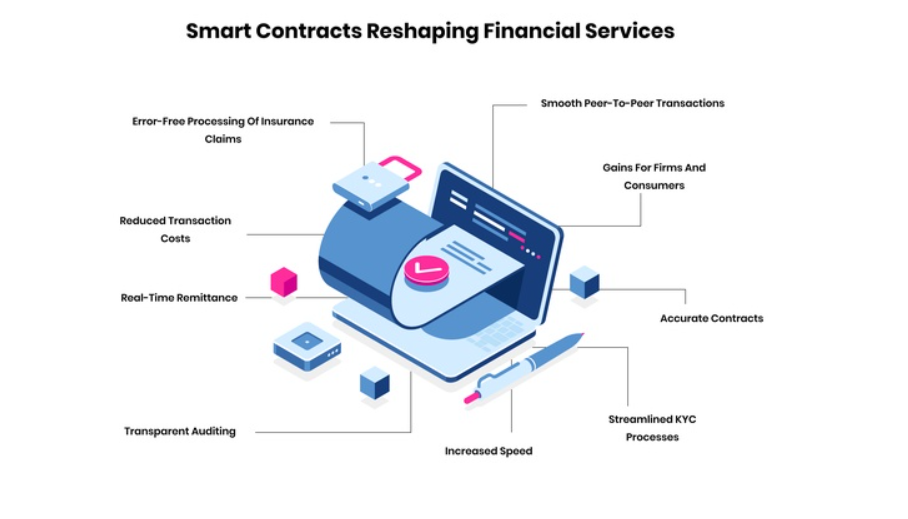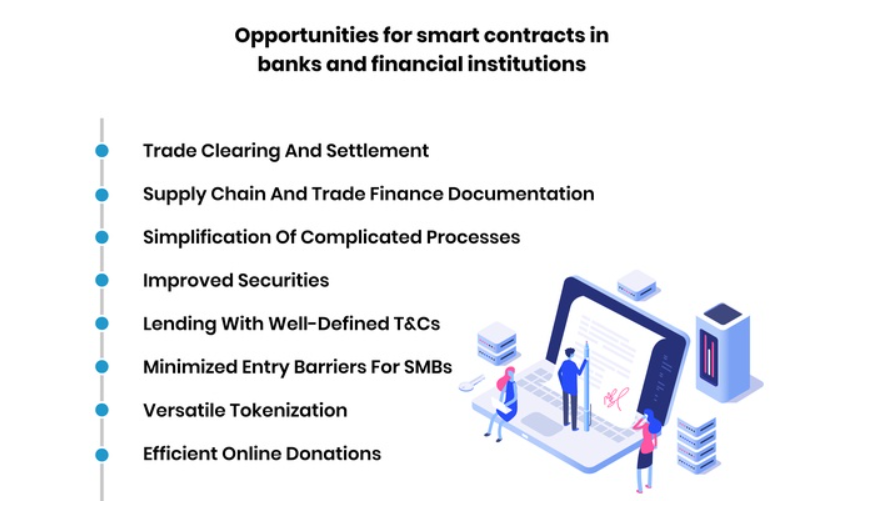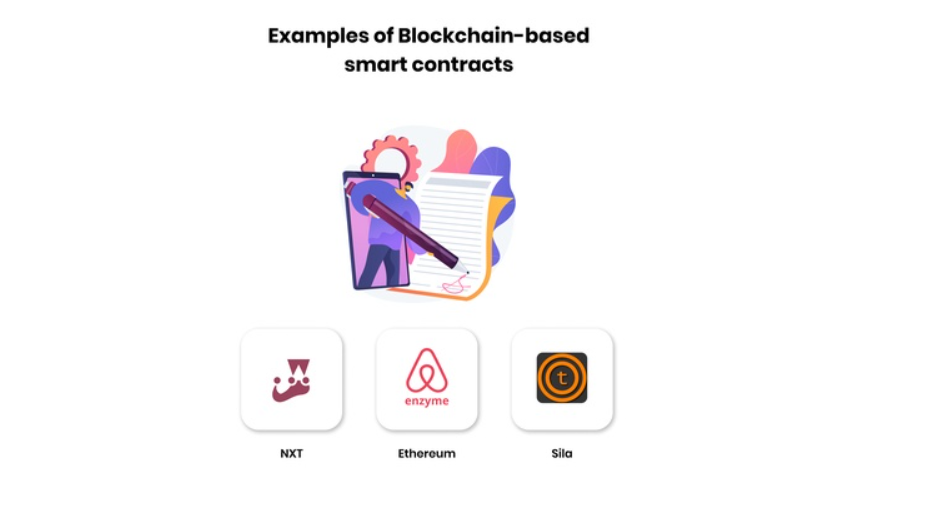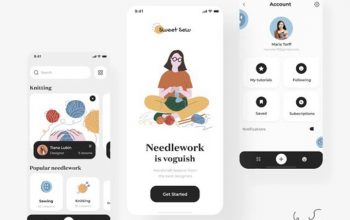Good contracts include a plethora of advantages. They’re tamper-resistant, self-executing, and self-verifying. They’re additionally altering the face of the banking trade within the type of error-free processing of insurance coverage claims, clean peer-to-peer transactions, streamlined KYC processes, clear auditing, and so forth. On this article, we’ll talk about the optimistic modifications that good contracts have introduced into this trade.
- Table of Contents
- How smart contracts are transforming banks and financial institutions
- buy android downloads and installs
- cheap android installs
- aso promotion
How good contracts are reworking banks and monetary establishments
Merely put, good contracts are self-executing programmable contracts that encode an settlement between two or extra events. The phrases of a transaction are written as a protocol that exists throughout a distributed, decentralized blockchain community system.
In contrast to conventional contracts, they don’t contain any paperwork or third-party validation. The contract is computer-coded, and compliance is ensured utilizing the blockchain expertise. Good contracts validate autonomously upon completion of the contract phrases.
These have the potential to automate handbook banking processes. It’s helpful for capabilities like compliance, claims-processing, and evaluating mortgage eligibility.
The functioning of good contracts
Good contracts are computer-coded blockchain functions. They work on pre-programmed phrases and circumstances that govern a transaction between two organizations. The phrases are executed on a condition-based precept. Each events can work together and reply in real-time to “if-when-then” circumstances of the contract. It permits events to transact anonymously if wanted.
The principle options of good contracts are:
- Compliance and controlling occur throughout the system with out the involvement of any social gathering. Good contracts are self-executing. They’re unbiased.
- They routinely supply info from exterior information sources, which makes them self-verifying.
- Good contracts are tamper-resistant and assure extra safety as intermediaries should not concerned.
- They provide quicker decision than handbook processes, which saves time for each events.
- They take away belief points from any contract due to the transparency they provide.
- Good contracts get rid of the necessity for third-party mediation on the time of settlement.
- The execution of good contracts is freed from price.
- They securely deal with delicate information, and all related information stays within the blockchain platform for future use.
- A cryptographic digital signature verifies participation within the contract, making them a great selection for high-end contracts.
Good contract typologies
Now that you’ve a primary understanding of what these are and the advantages they’re, allow us to discover the totally different varieties of good contracts in IoT techniques:
1. Good authorized contracts
These contracts can simplify authorized processes and guarantee strict adherence to regulatory pointers. They’re relevant for important monetary, worldwide commerce, and actual property market contracts. The present authorized framework lacks adequate context and help for automated contracts on the Blockchain. Nevertheless, as soon as the legal guidelines are in place, it is going to be simpler to make use of them.
2. Decentralized autonomous organizations (DAOs)
These are contracts constructed for blockchain communities. The contributors of those communities abide by the algorithm put into the contract’s code. Crowdfunding platforms, for example, use DAOs. Many good contracts make up guidelines, they usually work in the direction of successfully policing and supervising contributors. This ensures enhanced help amongst all events.
3. Software logic contracts (ALCs)
If in case you have ever heard of the Web of Issues (IoT) in regards to the Blockchain, chances are high you could have come throughout Software Logic Contracts or ALCs. These contracts are application-specific codes that work along side different packages on the Blockchain.
They assist set up and validate communication between IoT units. ALCs make up a significant piece of each multi-function good contract and majorly perform underneath a managing program.
Examples of Blockchain-based good contracts
When the idea of good contracts originated in 1994, little did anybody know that Blockchain expertise would make the duty of embedding these contracts into pc code that easy, guaranteeing transparency and safety of all information.

It’s a public Blockchain platform that enables creating good contracts accessible by means of its ready-to-use templates. The good contracts created utilizing NXT can’t be custom-made, because it makes use of a scripting language that’s not Turing-complete.
2. Ethereum
It’s a Blockchain platform that helps constructing superior and customised good contracts. It makes use of a stack-based bytecode language which is a Turing-complete high-level programming language. The code of those contracts is executed within the Ethereum Digital Machine (EVM).
3. Sila
It affords software program interfaces (APIs) for integrating real-world cost capabilities of banks resembling KYC, ACH, and digital funds. To create a wise contract on Sila, merely put within the property and request the code to execute routinely for delivering the property.
Good contracts reshaping monetary companies
Good contracts are very properly on their approach to altering how and the velocity at which enterprise will get completed throughout sectors. The monetary service trade isn’t any exception both. Good contracts can turn out to be useful for the next processes in banks and monetary establishments.
1. Error-free processing of insurance coverage claims
Assessing the legitimacy of an insurance coverage declare is a tedious course of. Counter-checking the phrases of a handbook contract and validating the declare takes a very long time. Blockchain-driven good contracts supply automated insurance coverage declare processing to the banking trade.

2. Lowered transaction prices
The transactions ruled by good contracts are self-regulatory. This facilitates low-cost record-keeping and reduces handbook intervention, which significantly lowers transaction prices in the long term.
3. Actual-time remittance
The adoption of digital modes of funds has raised the demand for a fool-proof remittance system. Blockchain-based good contracts ease cost processing permitting real-time fund switch whereas sustaining accuracy and transparency. In addition they velocity up transaction settlements by permitting their autonomous verification.
4. Clear auditing
Report-keeping is important to facilitate audits. Conventional contracts contain quite a lot of paperwork, and banks have to take a position sources to handle them. Blockchain-powered good contracts help superior bookkeeping instruments.
These are based mostly on incorruptible and distributed codes within the Blockchain community. The options improve the transparency of information saved whereas eliminating any potentialities of infiltration.
5. Elevated velocity
Automating handbook duties by means of software program codes helps cut back transaction instances. It helps velocity up banking operations by slicing down pointless handbook processes.
6. Streamlined KYC processes
KYC is a vital perform within the monetary companies trade. Banks and FIs confirm buyer identification earlier than providing a mortgage or participating in different transactions with a person. A wise contract system makes the method simpler for banks.
They’ll confirm credit score scores of people and identities based mostly on Blockchain information. Associated compliance necessities like tax returns are additionally processed in real-time — a unbelievable help for accounting corporations.
7. Correct contracts
Transactions pushed by good contracts are clear and self-executable. They cut back the possibilities of error by eliminating human intervention. That’s the reason they domesticate heightened belief amongst the events concerned within the contract.
8. Features for corporations and customers
Each banking establishments and clients profit from implementing good contracts. Banks save prices and streamline processes to make sure regulatory compliance. Clients additionally acquire from simpler and safer transaction strategies. Everybody wins!
9. Easy peer-to-peer transactions
Banks are customer-centric, and once they need to implement a expertise that helps them, they wish to guarantee it additionally works for his or her clients and shoppers.
Good contracts use Distributed Ledger Expertise (DLT) to get rid of third-party mediation. It results in price discount and simplifies transactions for these with out a checking account. The adoption of cryptocurrencies by retailers is facilitating peer-to-peer funds.
Good contracts allow such transactions, together with cross-border funds, with out the involvement of any trusted third events. They provide comfort and stability.
Alternatives for good contracts in banks and monetary establishments

Blockchains-powered good contracts supply banks the flexibility to streamline commerce clearing and settlement actions. Historically talking, the method is labor-intensive and liable to errors as a result of involvement of varied events for approvals and reconciliations.
Good contracts assist in avoiding discrepancies and saving prices by creating an environment friendly fairness settlement system. Together with 40 international banks throughout the R3 consortium, Wall Road is presently testing good contract-based clearing and settlement techniques.
Equally, the Australian Securities Alternate and the Depository Belief & Clearing Company (DTCC) are additionally engaged on a wise contracts-based post-trade platform.
2. Provide chain and commerce finance documentation
Decentralized ledgers of Blockchains assist streamline provide chain and commerce finance documentation. They’re extra environment friendly than paper-based techniques and considerably cut back processing time.
Then again, digitizing letters of credit score and payments of lading can also be not possible because the possibilities of forgery are increased. Blockchain affords safe and simply accessible receipts of transactions.
Good contracts ease documentation and workflow administration by means of digital signatures. Barclays Company Financial institution, for example, has just lately partnered with a startup platform Wave. It makes use of Blockchain to retailer bill-of-lading paperwork. The platform makes use of good contracts to automate log change of possession and cost processes.
Seven banks, together with Financial institution of America, Normal Chartered, and the Growth Financial institution of Singapore, have additionally given proof-of-concept testing for his or her organizations.
3. Simplification of sophisticated processes
Organizations should evaluation their inside processes and consider potentialities of simplifying complicated ones utilizing Blockchain. They’ll automate handbook workflows and facilitate interdependent transactions utilizing good contracts. Firms also can set up belief amongst events for multiparty agreements by providing transparency.
4. Improved securities
The standard settlement and clearance processes of securities markets are inefficient. Market contributors need to cope with opaque techniques whereas their cash stays trapped for unsure durations. Good contracts could make processes clear and cut back the settlement timeline to a couple minutes and even seconds.
5. Lending with well-defined T&Cs
Legacy techniques run on the income generated by the distinction in charges of curiosity paid to their traders and that charged from their debtors. An enormous inhabitants of debtors can not meet the stringent lending standards of conventional lending establishments.
Deploying a wise contract system helps monitor the loans of such debtors. Utilizing DLT, debtors who don’t qualify for a mortgage from a financial institution can borrow straight from traders, thus shortening the timescales inside which one can procure loans.
BlockFi even facilitates lending in opposition to cryptocurrency collateral with well-defined phrases for curiosity funds.
6. Improved KYC and fraud prevention
Banking processes throughout the globe have made buyer identification verification, also referred to as KYC, obligatory. It’s a necessary step in all monetary actions, together with buying and selling, borrowing, and lending.
Nevertheless, acquiring buyer credit score histories underneath legacy techniques is tedious and dear. However it’s a obligatory step to keep away from monetary fraud. A wise contract system will help banks streamline KYC operations.
They’ll simply confirm buyer identification by means of information maintained on the Blockchain and hint down a person’s credit score historical past.
7. Minimized entry obstacles for SMBs
Banks that run on legacy techniques often have cumbersome onboarding processes. Prolonged documentation and multi-step verification cut back accessibility for SMBs. Good contracts decrease the entry obstacles for SMEs and startups.
DeFi, for example, affords blockchain options that speed up the adoption of conventional banking techniques. It helps construct processes to match the agility of small companies. Monetary establishments can choose acceptable choices to fill market gaps.
They’ll reshape conventional monetary fashions and roll out new devices by leveraging the capabilities of decentralized ledgers. No marvel there is a rise in demand for IoT growth companies from small and medium-size companies.
8. Versatile tokenization
Blockchain has established an identification as a platform to ship secure and safe processes. Tokenization helps monetary establishments keep away from dangers related to cryptocurrencies and the market volatility that drives them.
They’re now providing variations of tokens, resembling Stablecoins, that are transactional fractions of main currencies. Their linking to {Dollars} or Euros ensures danger protection and stability in opposition to market fluctuations.
9. Environment friendly on-line donations
On-line donations have significantly superior the best way charities accumulate donations making it straightforward for supporters to pick causes.
By way of good contracts, charities could make impact-based donations that embody clauses stipulating that the cash will get transferred provided that particular set off circumstances are met.
Such contracts will improve the belief of supporters and improve general transparency and openness within the course of. Plus, good contracts cut back pointless (and typically excessive) donation processing and transactional prices.
How Blockchain can disrupt banking
Blockchain can disrupt conventional banking fashions. Banks adopting good contracts will reduce their operational prices and dangers considerably whereas limiting possibilities of errors.
The transparency provided by banks will assist them nurture long-lasting buyer relationships by offering passable companies persistently.
Good contracts backed by blockchain expertise can empower retail banking enterprise fashions. There are some challenges to broader adoption of the expertise by banks like scalability, volatility of cryptocurrencies, and creating stakeholder belief.
However, by deploying the correct rules and guidelines, safer banking techniques might be established, and buyer engagement might be boosted.
In conclusion
Indubitably, good contracts can unlock useful insights for banks and monetary establishments and perform their operations extra easily and effectively. Expertise leaders envision many apps for Blockchain-based good contracts.




